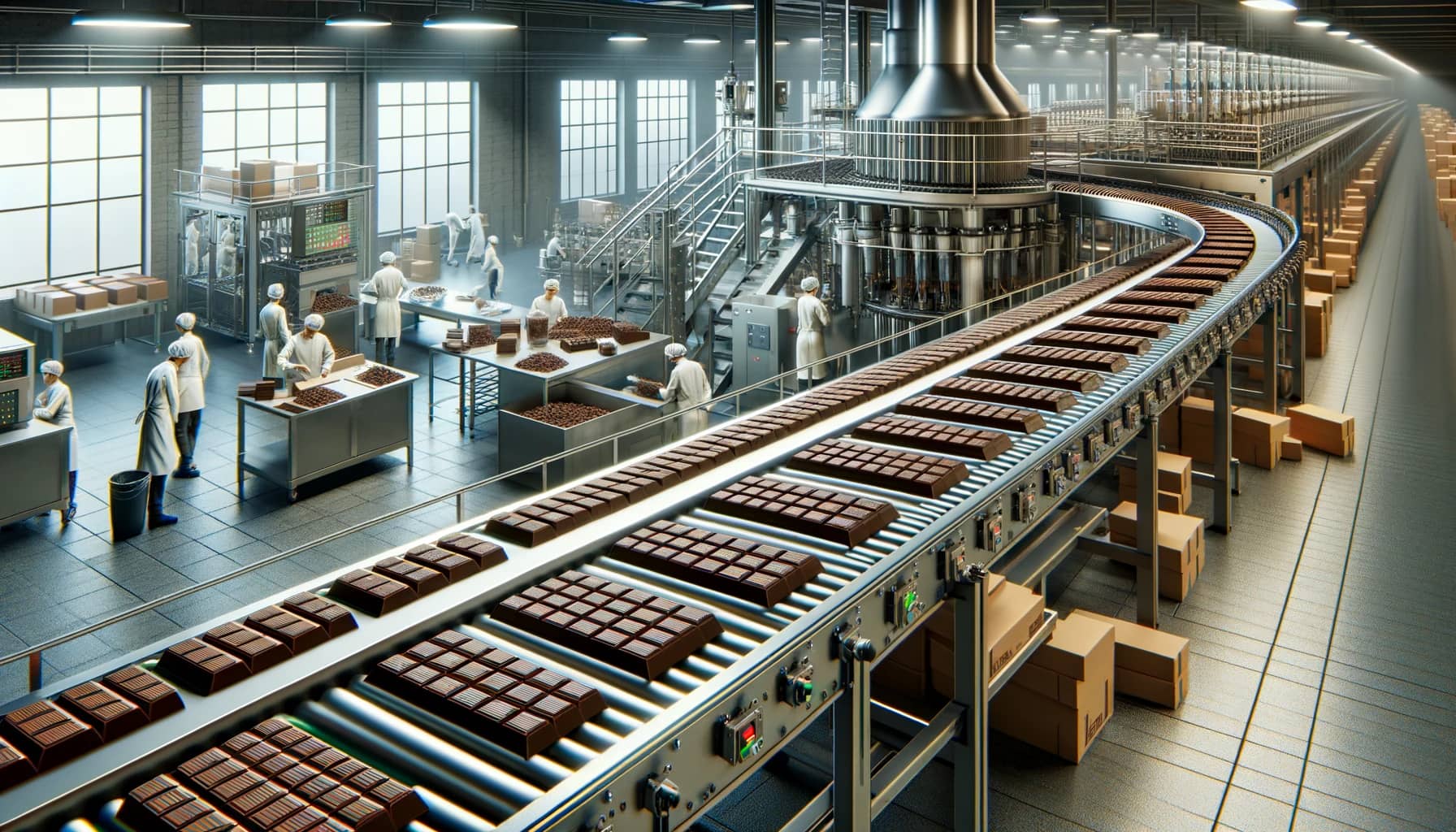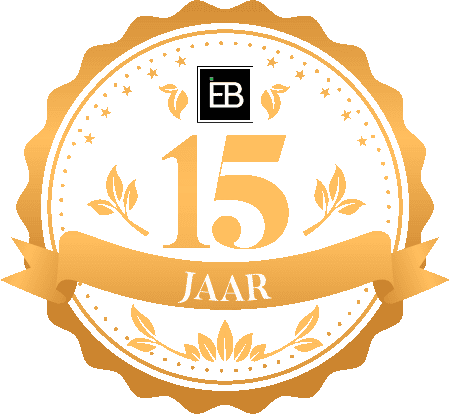The Netherlands’ relationship with cacoa and chocolate began in the 17th century, when the country became a major player in trade through the Dutch East India Company (VOC). This historical development laid the foundation for the Netherlands as a center for cocoa processing and trading. In the 19th century, Coenraad van Houten developed the Dutching process, which significantly improved the quality of chocolate. This invention paved the way for the mass production of chocolate and positioned the Netherlands as an innovator in the industry.
The Netherlands is currently one of the largest importers of cocoa beans in the world. The ports of Rotterdam and Amsterdam play a central role in this. These ports not only act as transit points for cocoa beans heading to other European countries, but are also the location of significant processing facilities. The Dutch processing industry is known for its efficiency and quality, supplying a wide range of cocoa products, including cocoa butter, cocoa powder and cocoa mass.
Innovation and processing technology
Dutch companies and research institutes are at the forefront of innovation in the cocoa sector. This includes advanced processing techniques and sustainable practices.
Dutch researchers have contributed to the development of improved fermentation processes and more efficient production methods, which improves the quality of chocolate products worldwide.
Largest importer of cocoa beans in 2022
The Netherlands will take first place worldwide in 2022 as the largest importer of cocoa beans:
| No. | Country | Quantity (tonnes) |
|---|---|---|
| 1 | Netherlands | 772,785 |
| 2 | Germany | 472,926 |
| 3 | Malaysia | 459,400 |
| 4 | United States of America | 343,801 |
| 5 | Belgium | 328,898 |
| 6 | Indonesia | 239,152 |
| 7 | France | 169,456 |
| 8 | Canada | 134,900 |
| 9 | Italy | 100,920 |
| 10 | Singapore | 95,396 |
The Netherlands tops the list as the largest importer of cocoa beans, followed by Germany and Malaysia. This data provides an interesting insight into the global dynamics of cocoa bean trade.
Important Dutch companies and organizations in the cocoa and chocolate industry
The Netherlands is home to some of the largest cocoa and chocolate companies in the world. Some well-known companies and organizations are:
- Cargill Cocoa & Chocolate: Cargill is one of the largest players in the global cocoa market and has a significant processing facility in the Netherlands.
- Barry Callebaut: This Swiss chocolate manufacturer has a strong presence in the Netherlands and is known for its high-quality chocolate products.
- Tony’s Chocolonely: A Dutch company focused on producing 100% slave-free chocolate, known for its ethical approach to chocolate production.
- De Zaan: Part of Olam, De Zaan offers a wide range of cocoa products and is known for its quality and innovation.
- Royal Duyvis Wiener: Specialized in machines for cocoa processing and chocolate production, it plays an important role in the technological aspects of the industry.
- Dutch Cocoa Factory: A historic player in Dutch cocoa processing, known for its quality cocoa butter and powder.
- Verkade: A traditional Dutch brand that has been making chocolate products for more than a century, loved for its quality and range.
- Chocolatemakers: An artisanal chocolate producer that focuses on sustainability and direct trade relationships with cocoa farmers.
- Droste: Known for its cocoa powder and chocolate bars, Droste is one of the oldest chocolate brands in the Netherlands.
- Heinde en Verre: A relatively new player, known for its luxurious, artisanal chocolate that is appreciated worldwide.
- Mars Nederland: An important player in the chocolate market, known for its wide range of chocolate products.
- Nestlé Netherlands: Offers a variety of chocolate products and is actively involved in sustainable cocoa initiatives.
- Chocoa Festival: An annual event in Amsterdam that focuses on sustainable cocoa and chocolate and brings together key industry players.
Export of chocolate in 2022
A large part of the cocoa beans imported into the Netherlands are processed into chocolate by the above companies and then re-exported. The table below shows that the Netherlands ranks third worldwide as a chocolate export country:
| No. | Country | Quantity (tonnes) |
|---|---|---|
| 1 | Germany | 990,398 |
| 2 | Belgium | 667,471 |
| 3 | Netherlands | 489,140 |
| 4 | Poland | 456,081 |
| 5 | Canada | 425,078 |
| 6 | Italy | 415,212 |
| 7 | United States of America | 332,030 |
| 8 | France | 324,095 |
| 9 | Turkey | 251,175 |
| 10 | Mexico | 222,113 |
Germany tops the list as the largest exporter of chocolate, followed by Belgium and the Netherlands. These countries play a significant role in the global chocolate trade.
CBI and trade facilitation
The CBI, an initiative of the Dutch Ministry of Foreign Affairs, plays a crucial role in promoting the import of cocoa products from developing countries to Europe. By providing training and market information, the CBI helps cocoa producers in developing countries gain access to the European market. This contributes to economic development in these countries and promotes sustainable trade practices.
Wageningen University & Research (WUR)
WUR is a world leader in agricultural research and plays a key role in research into cocoa production and sustainability.
The university works with international organizations, government agencies and the private sector to develop innovative solutions to challenges in cocoa farming, such as disease resistance, climate change and sustainable agricultural practices.
Sustainability and Social Responsibility
Dutch companies and research institutions are pioneers in innovation within the cocoa sector. This includes not only improving processing methods but also developing more sustainable practices. The Netherlands is taking a leading role in tackling problems such as deforestation and forest degradation", child labor and unfair trade practices in the cocoa sector. Significant investments are being made in traceability and transparency of the supply chain, with the aim of reducing the social and environmental impact of cocoa production. The Netherlands is a leader in the use of certified cocoa, such as Fairtrade and Rainforest Alliance.
Future trends and developments
As global demand for chocolate continues to grow, the Dutch cocoa and chocolate industry faces several challenges and opportunities. One of the biggest challenges is ensuring a sustainable supply chain that is economically viable for cocoa farmers while minimizing environmental impacts, including through the EUDR adopted in 2023 (European Union Deforestation Free Regulation). Innovation in cocoa farming, such as improved agricultural techniques and the use of more sustainable crops, will play a key role in addressing these challenges.
Influence of the EUDR on chocolate
The European Union Deforestation-free Regulation (EUDR) has significant consequences for the global and Dutch chocolate market. The EUDR focuses on reducing deforestation and environmental impact associated with the production of raw materials such as cocoa. For chocolate producers in the Netherlands and other EU countries, this means stricter requirements regarding the origin of cocoa. Producers must now ensure that their cocoa does not contribute to deforestation and meets certain environmental and social standards.
This could lead to changes in supplier choices and potentially higher costs due to the need for certification and auditing of the supply chain. Importers may be forced to switch to more sustainable cocoa sources, which could impact market dynamics and increase cocoa costs. This in turn affects the production and export costs of chocolate, both within the Netherlands and internationally.
These changes can also have positive consequences, such as encouraging more sustainable agricultural practices and improving the living conditions of cocoa farmers. The EUDR can thus contribute to more responsible and sustainable cocoa cultivation and chocolate production, which can be beneficial for the sector and the environment in the long term.
Summary
The Dutch cocoa and chocolate industry, with its rich history and innovative techniques, plays a crucial role in the global market. The Netherlands, as the largest importer of cocoa beans and a major exporter of chocolate in the world, continues to innovate with a strong focus on sustainability and ethical practices.
Future developments are likely to be characterized by continued innovations, with an increasing emphasis on sustainable and responsible cocoa cultivation and chocolate production, partly influenced by regulations such as the EUDR.


